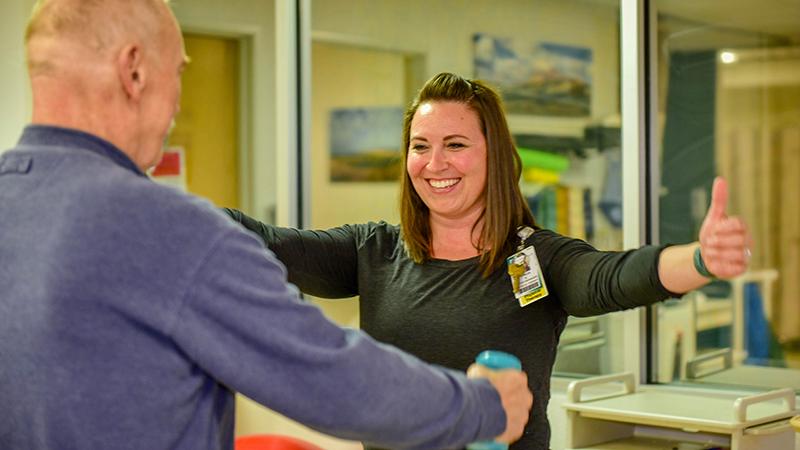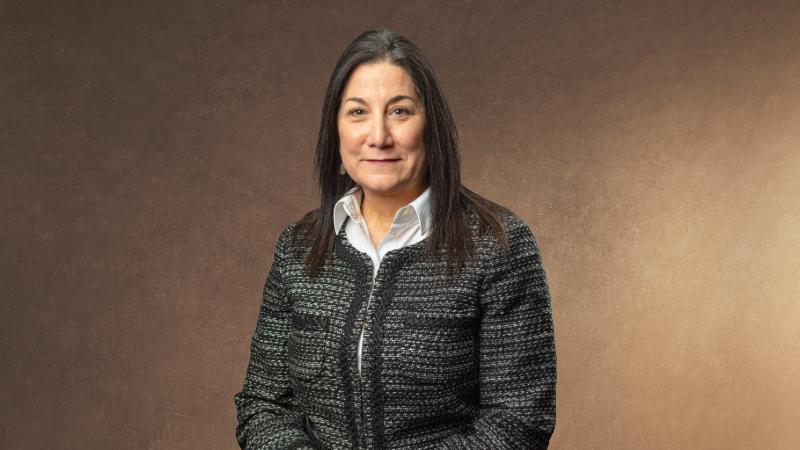
October 1, 2021
Ob/Gyn, pregnant medical assistant share vaccination stories
Madison Ellison, a medical assistant at the St. Peter’s Health Medical Group – Broadway Clinic, didn’t hesitate to take the Pfizer COVID-19 vaccine when it became available last winter. She not only wanted to help protect herself against the virus, but also help provide protection to vulnerable family members.
When she found out she was pregnant with twins in May after being fully vaccinated for several months, she added two more family members to the list she could help protect.
“I was really happy I got vaccinated and I would do it again,” Madison said. “This is the greatest protection we can give (our kids).”
Dr. Jecca Parson, an obstetrician and gynecologist at Helena OB/GYN, took the COVID-19 vaccine as soon as it became available to her in December 2020, 10 days after giving birth to her son.

“If I had been able to get the vaccine while pregnant, I would have. Along with providing protection to mothers, studies demonstrate that vaccinated pregnant women pass antibodies to their babies through the placenta,” Dr. Parson said.
The Centers for Disease Control and the American College of Obstetricians and Gynecologists recommends vaccination for everyone over 12 years, including people who are trying to get pregnant or might become pregnant in the future, as well as pregnant and lactating women. There is currently no evidence that antibodies made following COVID-19 vaccination or that vaccine ingredients would cause any problems with becoming pregnant now or in the future, according to the CDC.
“I knew we wanted to try to get pregnant (before I got the vaccine),” Madison said. “I talked to a couple providers I work with and they’re the ones who said there’s no evidence to suggest it would cause infertility.”
Protecting moms protects babies
Pregnancy is included in the CDC’s list of underlying medical conditions that increase a person’s risk of severe illness from COVID-19. Vaccines are highly effective in preventing severe illness from COVID-19.
“To me, getting sick is a lot of scarier than the threat of infertility, especially because there’s no evidence to support that vaccines cause infertility,” Madison said.
Madison has continued to educate herself on the ways the vaccine can help protect her and the twins, who are scheduled to arrive in late November.
Madison has shared her story with reluctant patients who have questions about the vaccine and how it might affect their fertility or pregnancy.
“I’ve been asked if I’m getting the booster and if I’d get the vaccine again while pregnant,” Madison said, “and I always say ‘absolutely.’ ”
Dr. Parson participated in research studies evaluating breast feeding after vaccination. Studies have shown breast milk from vaccinated mothers contains antibodies.
“I hope this helps women have the data to feel secure in their decision to become vaccinated. I continue to exclusively breastfeed my son and hope that he is receiving protection,” she said. “Although we do not know yet how much real-world protection this has for babies, just having the parents vaccinated, and surrounding the baby with a vaccinated family, provides important protection.”
Free COVID-19 vaccines available
First, second and booster doses of the COVID-19 vaccines are available to eligible groups by appointment at St. Peter’s. Click here for vaccine appointment and eligibility information.


